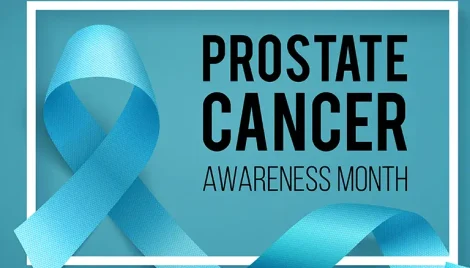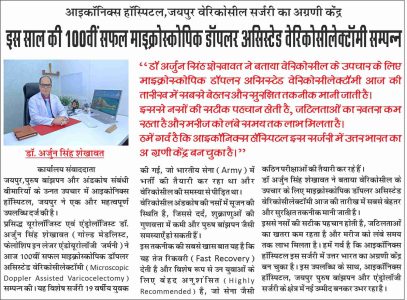
- Home
- About
- Treatments

Laser Treatment of Kidney Stone
 December 15, 2023
December 15, 2023 Overview
Q1: What is laser lithotripsy?
In laser lithotripsy, a specialized procedure used to break up stones in the urinary tract, a laser is employed by a urologist during a ureteroscopy. Dr. Arjun Singh Shekhawat, Senior Urologist and Director of Iconix Clinic, offers the most advanced laser treatment of kidney stones.
Q2: Is laser lithotripsy major surgery?
Laser lithotripsy is considered a minimally invasive procedure and is not classified as major surgery.
Q3: What’s the difference between laser lithotripsy and shock wave lithotripsy?
Laser lithotripsy breaks up stones directly with a laser inside the body, while shock wave lithotripsy uses shock waves externally. Laser lithotripsy is more effective for certain stones that shock wave lithotripsy may not be able to treat.
Procedure Details
Q4: What happens before laser lithotripsy?
Patients are advised to fast before the procedure, stop certain medications, and arrange for transportation home after. Communication of all medications taken is crucial for the procedure.
Q5: What happens during laser lithotripsy?
Under general anesthesia, a scope is inserted into the urethra with a laser fiber to break up the stone, followed by collecting the stone fragments and placing a temporary tube for drainage.
Q6: How long does laser lithotripsy take?
Typically, laser lithotripsy lasts one to two hours.
Q7: Is laser lithotripsy painful?
Patients do not experience pain during the procedure due to anesthesia, but there may be discomfort post-procedure.
Q8: What happens after laser lithotripsy?
Patients are monitored post-procedure, given pain medication and antibiotics if needed, and may have a stent placed to aid in recovery.
Risks / Benefits
Q9: What are the advantages of laser lithotripsy?
Advantages include higher success rates, lower blockage risk, flexibility in treating various stones, effectiveness on multiple stones, and suitability for patients on blood thinners or pregnant.
Q10: What are the risks and side effects of laser lithotripsy?
Common side effects post-procedure include pain, difficulty urinating, blood in urine, nausea, and fatigue. Complications may include ureter injury, urinary tract infection, and stone blockage.
Recovery and Outlook
Q11: How long does it take to recover from laser lithotripsy?
Most individuals can resume usual activities within a week, although discomfort during physical activities may persist if a stent is present.
Q12: How can I take care of myself after laser lithotripsy?
Hydration is key for recovery, alongside following provider instructions for medication, activity levels, and post-procedure care.
For further assistance and detailed information, contact Iconix Clinic at 918239888451.
Remember, with Dr. Arjun Singh Shekhawat at Iconix Clinic, laser treatment for kidney stones provides new hope with minimal pain and maximum effectiveness.
Tags:Related Blogs
-
 September 9, 2025
September 9, 2025 -
 September 23, 2025
September 23, 2025 -
 September 23, 2025
September 23, 2025

-
D 9/90-Opposite Swaminarayan mandir gate no-1, Chitrakoot, Vaishali Nagar, Jaipur, Rajasthan 302021.
-
Customer Support
+91 82398 88451 -
Drop Us an Email
info@drarjunsinghshekhawat.com
Quick Links
Treatments
Policies

© 2025 Dr. Arjun Singh Shekhawat, All Rights Reserved.
-


